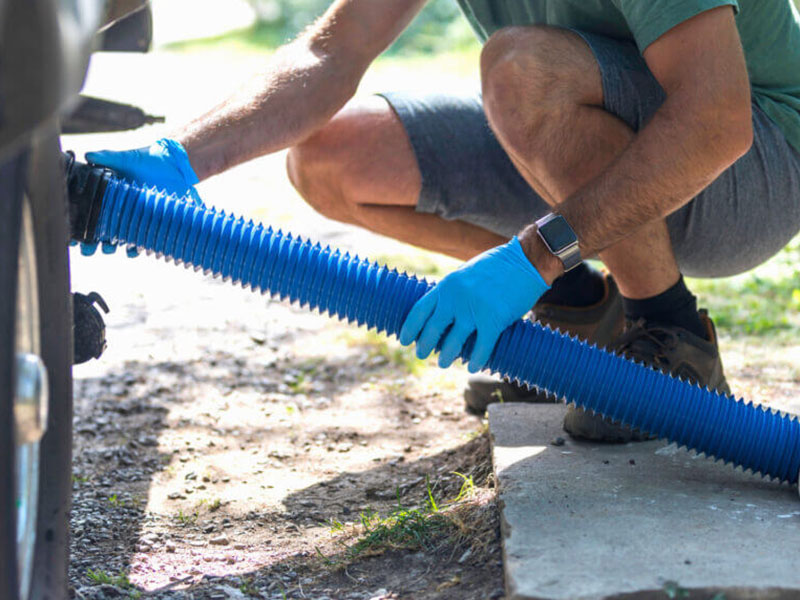For avid travelers, owning a travel trailer brings a sense of freedom and adventure. However, with great convenience comes certain responsibilities, and one essential aspect is dumping the waste from the trailer’s holding tanks. Properly disposing of waste not only ensures a clean and healthy environment but also contributes to responsible RVing practices. In this blog post, we’ll explore the time needed for dumping travel trailer waste and some essential considerations to make the process seamless and efficient.
1. Time Needed for Dumping:
The time required for dumping travel trailer waste depends on various factors, including the following:
a) Frequency of Use: How often you travel and use your trailer will influence the frequency of dumping waste. Full-time RVers will likely need to do it more often than occasional travelers.
b) Tank Size: Travel trailers have different tank capacities for black (sewage) and gray (sink and shower water) waste. Larger tanks may allow you to go longer between dumps, but it also means a lengthier process when emptying.
c) Location Accessibility: The availability of dumping facilities along your route or at your campground affects the time spent searching for a suitable spot.
d) Experience: As you gain experience with the process, you’ll likely become more efficient at dumping waste, reducing the overall time.
On average, the entire dumping process can take anywhere from 20 minutes to an hour.
2. Essential Considerations:
a) Choose the Right Dumping Station: Look for designated RV dump stations or campgrounds with dumping facilities. Avoid improper disposal methods, as it is not only illegal but also harms the environment.
b) Be Prepared: Before starting the dumping process, ensure you have the necessary equipment, such as disposable gloves, a sewer hose, and a water hose for rinsing. Check out this blog post where I compare the top sewer hoses!
c) Black Tank First: Always empty the black tank first, as it contains sewage waste. Follow this by dumping the gray tank, which helps flush out the sewer hose.
d) Rinse and Clean: After emptying the tanks, rinse them thoroughly to prevent buildup and odors. Use a non-toxic tank cleaning solution for best results.
e) Practice Proper Hygiene: Dumping waste requires some manual work, so remember to practice good hygiene throughout the process.
f) Avoid Rush Hours: If possible, try to avoid peak times at dump stations, especially on busy travel days or holiday weekends.
Conclusion:
Dumping travel trailer waste is an essential responsibility for all RVers. The time needed for this process can vary depending on several factors, but with experience and proper preparation, it can be completed efficiently. Always prioritize environmental preservation and follow the best practices for responsible waste disposal. By being mindful of these considerations, you’ll contribute to a cleaner and more enjoyable experience for yourself and fellow travelers. Happy and responsible RVing!

